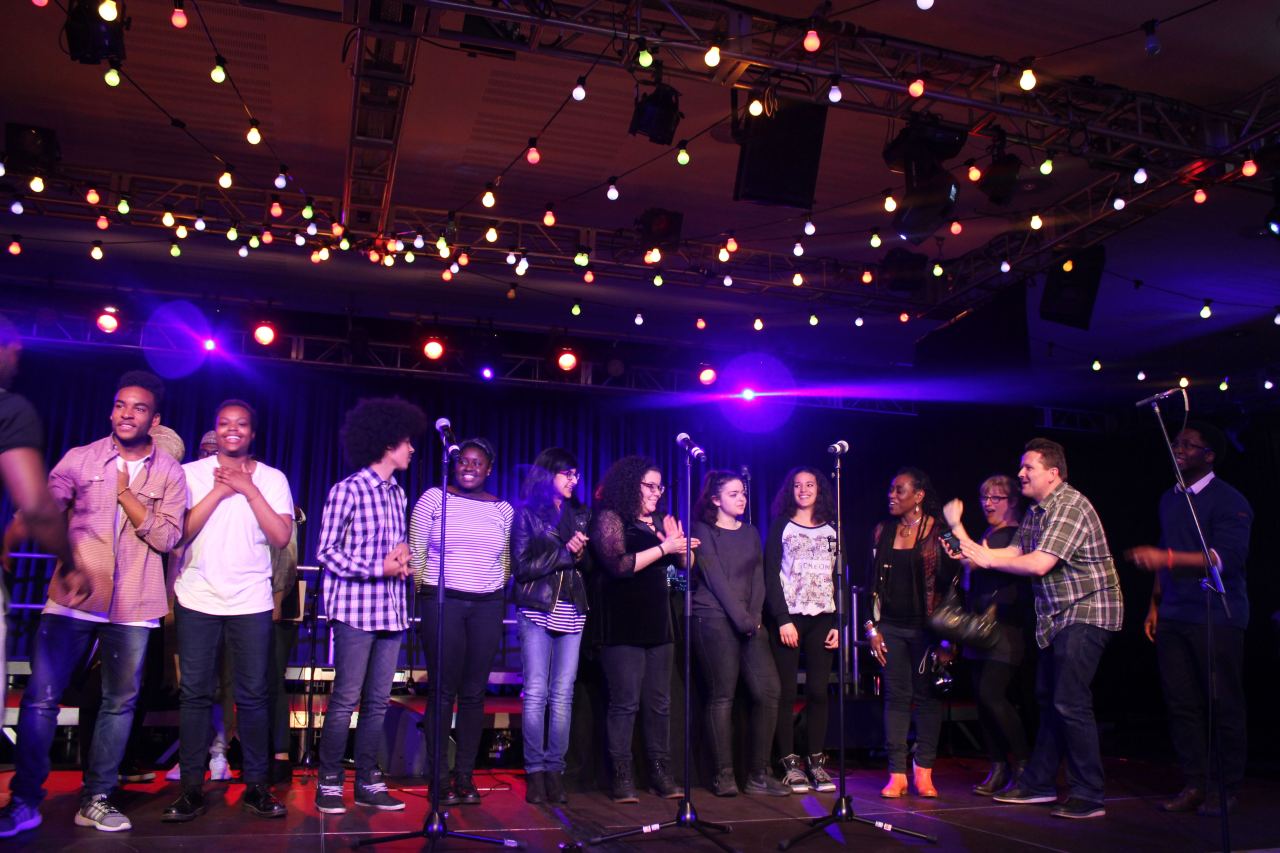Points of Poetry
Shot from the Lip 2015
Listening to poets
from five different cities, who also happen to be teenagers, the power of
certain lines kept hitting me. These lines didn’t just draw recognition, a cackle
or the weight of a pain—it was as if the words came physically out in the air
to pierce through the pretences, illusions and structures that we live in.

‘The points are not the point, the point is the poetry’ is an old slam maxim, and of course it’s been said enough to become a real cliché. I didn’t hear it said this weekend, but I did come away thinking about the bigger picture of its meaning.
This is the sixth youth poetry slam I’ve been involved in coordinating, and the fourth that’s brought together teams from across the country. The projects I work on place a lot of emphasis on celebration and collaboration, and deviate from the traditional slam model. We never hold up scores after poems, we don’t even announce any scores or ranking order and we don’t pick judges from the audience—we invite a panel with diverse expertise in literature and performance. The slam itself is always one event in a weekend of events and workshops, in which young people and mentors from across all teams work with and get to know each other.

Still, when it comes to the slam, there are judges, a scoring rubric, time penalties and a highest scoring team. As a producer, I’m usually the one who escorts the judges out of the theatre and remains present during their decision-making. It’s a serious moment—teams have invested all of themselves in the crafting of their pieces and worked intensely to prepare. The judges honour that work and their job is desperately hard—to use numbers to differentiate between poems that have invariably moved them and often blown them away. And of course the teams care who wins the awards, although it doesn’t stop them cheering on the other teams when they’re hit by the power of a line or performance technique.
And here’s why I’m going on about this. Because like I said, there are these moments—many moments over the weekend, in and outside of the slam event itself—in which the poetry breaks through not only the slam points system but the whole greater world-points-system of competition/commercialism/inequality. It exposes, it offers alternatives and it reminds us why we live.
Poetry reminds us why we live because it speaks the truth—every poem that moved me this weekend in some way confirmed this. There was a poem about the state of confusion that exists for students within the school-exam-UCAS-life-decision system. There was a poem about being an introvert. There was a particularly brave poem about FGM that was also beautiful in how it honoured women and the body.
As humans we rely on systems. The useful element of competition is that it gives us something to strive towards—it can make us better. But we all know that if we start to focus on the competition itself—on success for the sake of success—we’ve lost sight of why we were bothering in the first place.

Where the poetry cuts through its own points system to the truth, slam is basically a metaphor for poetry itself and how it functions in the world.
Written by Miriam Nash, Poet, performer, youth arts producer, author of Small Change from flipped eye publishing
https://twitter.com/miriamnash
 garfinski liked this
garfinski liked this comeintoland liked this
amadeuswolfe liked this
shotfromthelip posted this